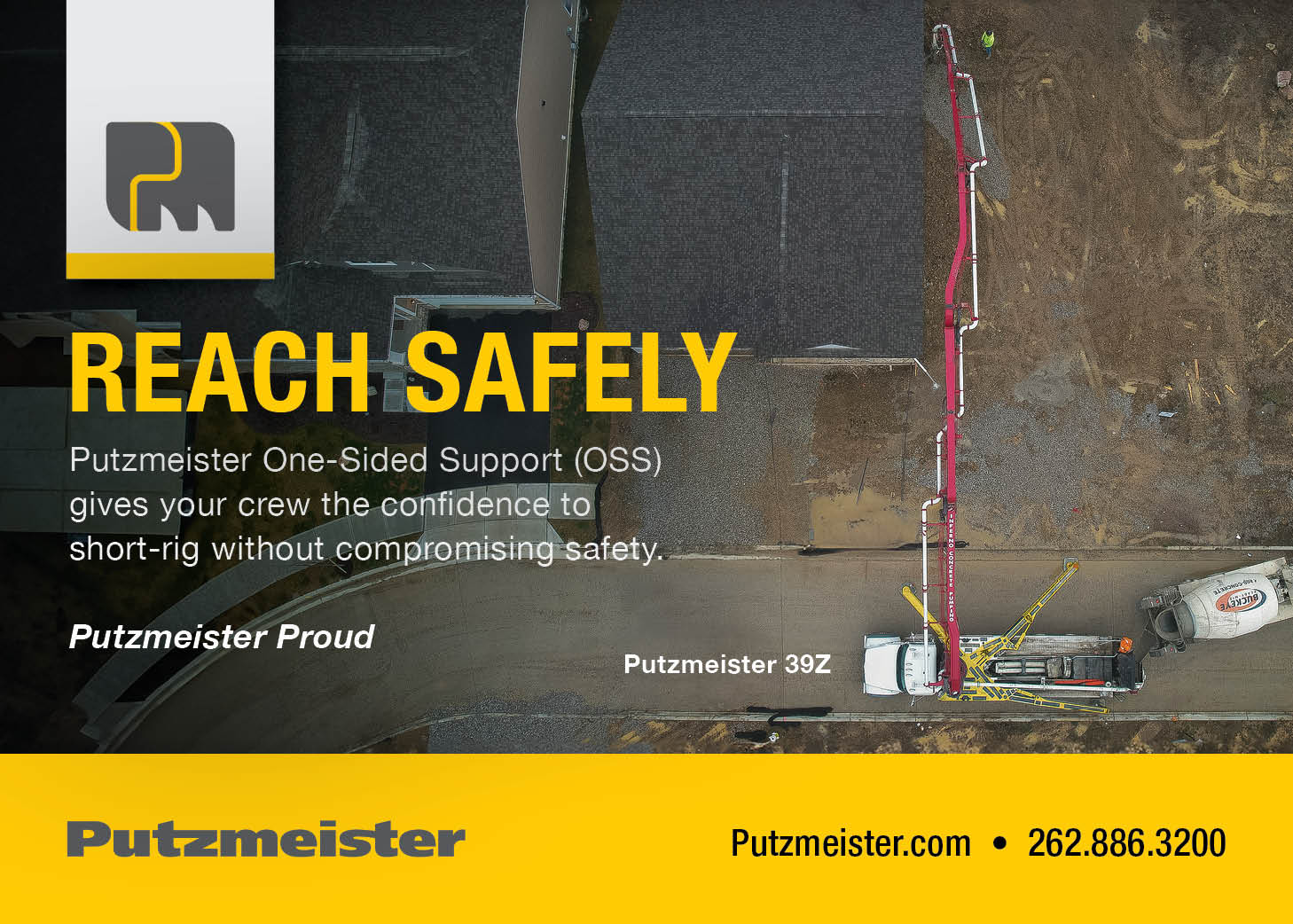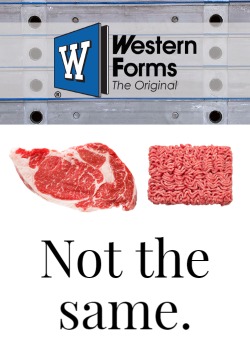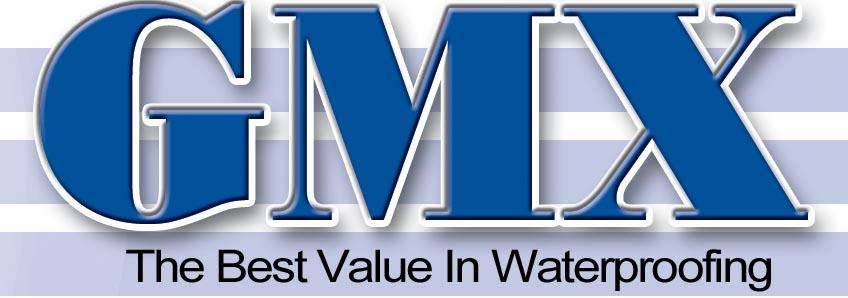GPS Management Tools That Work
The costs of running a business, any business, are rising. Talk with any owner and you are not likely to find any argument to that statement. So as the rising costs of operation tighten the hold on profitability—what are the options to fight back? What are proven means you can employ to improve your chance of maintaining margins or possibly improving them? One way to uncover these is to look among your peers, the companies that are interconnected with you in the network that is the CFA. Here you will fi nd companies thinking creatively and using technology to not just offset these rising costs but also find improvements in their business that are often immeasurable. One such example was demonstrated during the recent CFA Annual Summer Convention in Stowe, Vermont as Bruce Neale of Modern Foundations, located in Woodbine, Md. described the struggle and now success of adding Global Positioning Systems (GPS) to their work equipment.
GPS: MANAGEMENT TOOL THAT WORKS
Fluctuating gas prices, rising insurance, traffic violations—sound familiar? All are pressures on management to maintain the cost of business operation. Fuel costs alone, although unreasonably high, have actually been increasing drastically for the last decade. From 1998 to the present, the average price of gas in the United States has increased nearly 300 percent according to gas price history on zFacts.com. The construction industry uses gas daily and in extreme amounts. The rising price of oil has even forced some construction firms to add surcharges to projects in order to stay ahead. So what if you could discover, from listening to a company that you share a common interest with, an effective way to reduce their gas use. Through the use of GPS not only can the rising cost of fuel be mitigated, Modern Foundations has uncovered opportunities for improving communications, keeping more efficient records, preventing theft, increasing recovery and saving on insurance.
VEHICLE TRACKING
GPS allows a central unit to track where smaller units are located. By tracking the routes a vehicle takes each day, a business can see the direction the trucks are traveling and if there is a better, more efficient way of reaching their destination. Modern Foundations implemented the use of GPS to monitor their trucks and saw these results: Their trucks would travel the main highways from the central office to job-sites because they did not have to pass a scale house leaving the office. However, often on the return trip many drivers would take out of the way rural roads to avoid a scale house knowing it was positioned between them and the yard. This would take them several miles in the opposite direction and add as much as 30 minutes to their return to the office. Not only did this result in extra time but also used unnecessary amounts of fuel, and potentially even more significant—pushing many of the employees to then receive overtime because of their choice to take the longer route.
Another wasteful use of fuel is one that many people are aware of yet do not change — speeding. According to fueleconomy.gov speeding can lower gas mileage by 33 percent at highway speeds. As an example of how GPS can lower costs once again, Modern Foundations was able to reduce their highway speeding by 10 mph. Observing that their drivers traveled on highways at a speed between 75 and 85 mph, they started weekly speeding reports which brought their range of speed down to 65 and 75 mph. They now recognize one person each month for having no speeding events over 70 mph.
IMPROVED COMMUNICATION
Another benefit which Modern Foundations has discovered by implementing GPS is a reduction in unnecessary radio calls to determine crew location or arrival time. GPS has added the ability for crews to identify their locations easier and their estimated times of arrival. This in turn has strengthened the relationship with their customers as the client can be advised more promptly if a crew is running behind and when they will arrive.
Crews have also benefitted from the addition of GPS to their vehicles as communication is improved with the on screen messaging system. This allows the central location to send special directions out to a driver. Messages are helpful in avoiding traffic problems or road closings as well as sending information about the job itself or how to access the site.
“Our ability to communicate as a company using GPS has strengthened our sense of team while greatly improving our safety,” says Bruce Neale. “We have realized a dramatic 50% reduction in two-way radio communication in route. This, coupled with a policy that does not allow employees to use personal or business cell phones while driving has greatly increased our driver safety. This is very important to our company efficiency and structure but where it has also really improved our company is our ability to relate to the customer. We now can alert them as to when crews should arrive. Should they get lost, the system allows them to call back and receive help with directions safely by telling the system not to display text messaging until the vehicle stops.”
EFFICIENCY
Vehicles more than 13 tons that travel over state lines must report fuel consumption to each state. Reporting these records becomes much easier and more accurate with GPS. Records for off-road fuel use can also be pulled from GPS and used for refunds – another cost saving advantage to the GPS. For power take-off operated equipment, a firm is able to deduct the federal on road fuel tax that has been paid while operating truck mounted equipment.
Firms are also able to use GPS to increase efficiency in their time keeping. When a crew arrives at a site as well as when they leave can be detailed in the GPS. According to an America Online and Salary. com survey of over 10,000 workers conducted in 2005, employees on average lose 2.09 hours per 8-hour workday to a variety of things like getting lost, stopping for coffee, etc…. Therefore, a firm is able to verify the hours submitted by crews with the GPS as well as track split wage rates. For a firm that pays higher wages for onsite work than driving or maintenance, these hours can be tracked using the GPS.
EQUIPMENT MANAGEMENT
GPS can also be used to track hourly rental equipment such as concrete pumps or telebelts. Although firms must keep track of their hours for rental equipment, more important is preventing loss of that machinery as well as the company’s tools. Stolen construction equipment from jobsites is an increasing occurrence, one which costs as much as $1 billion annually in the United States. In addition, insurance market reports have shown an increase of up to 20 percent in the value of equipment thefts every year since 1996, according to the NER’s Web site, www.nerusa.com, making these thefts even more appealing. With GPS a firm is able to track the path of the stolen vehicle to help with the police investigation and locate the vehicle easier.
“Our facility was broken into one night and a truck and Bobcat were stolen. We were able to recover this equipment quickly by feeding the police information from the GPS. We employed two systems to make sure we were tracking the vehicle accurately,” says Neale. “We also know based on the reported incidents since implementing these systems that just having the units in the vehicle has been a deterrent to several would-be thieves.”
INSURANCE SAVINGS
Having a GPS allows a firm to negotiate better rates with insurance companies. The use of a GPS can help prevent theft, increase theft recovery and also help keep maintenance schedules for vehicles. With these precautions already taken with the purchase of a GPS, firms have been able to settle on lower rates with insurance companies.
As some firms in the concrete foundations industry have already learned, GPS can be used as a very efficient and cost/time saving management tool. With gas prices continually soaring due to rising oil prices as well as rising demand for it, firms are being forced to implement new tools and actions in order to save money in their everyday practices. GPS is an easy and effective tool that has already proved success to many firms in concrete foundations.
CONSCIENTIOUS EMPLOYEES
All of the time, material and resource savings that GPS can produce, however, are only as effective as the sense of commitment and quality that the employees can develop. By considering strategies to involve your employees in these solutions, firms have proven that many more intangible gains have come with the tangible ones. Modern Foundations knew that most of their crew took trucks home and they didn’t know when they stopped working at the job. GPS not only tracked this but allowed their workers to look at those habits over time, encouraging their crews to be more efficient.
“We had a crew that stopped to play soccer each day for an hour before checking back into the office,” says Neale. “By tracking their habits and then working with them to understand the impact of their decisions, we were able to affect change to this crew positively rather than through discipline.”
Whether it is reducing speeds by helping crews realize how often they drive in excess or by encouraging them to make the right choices in the routes they travel. GPS can be implemented effectively in the team environment to encourage them to be a part of the solution rather than forcing them to except the control measure. Have you looked into technologies to change your business? Contact a fellow CFA member and share your experiences, your concerns or your reservations. You may just find an opportunity that grows from that conversation that you had not previously thought possible.







